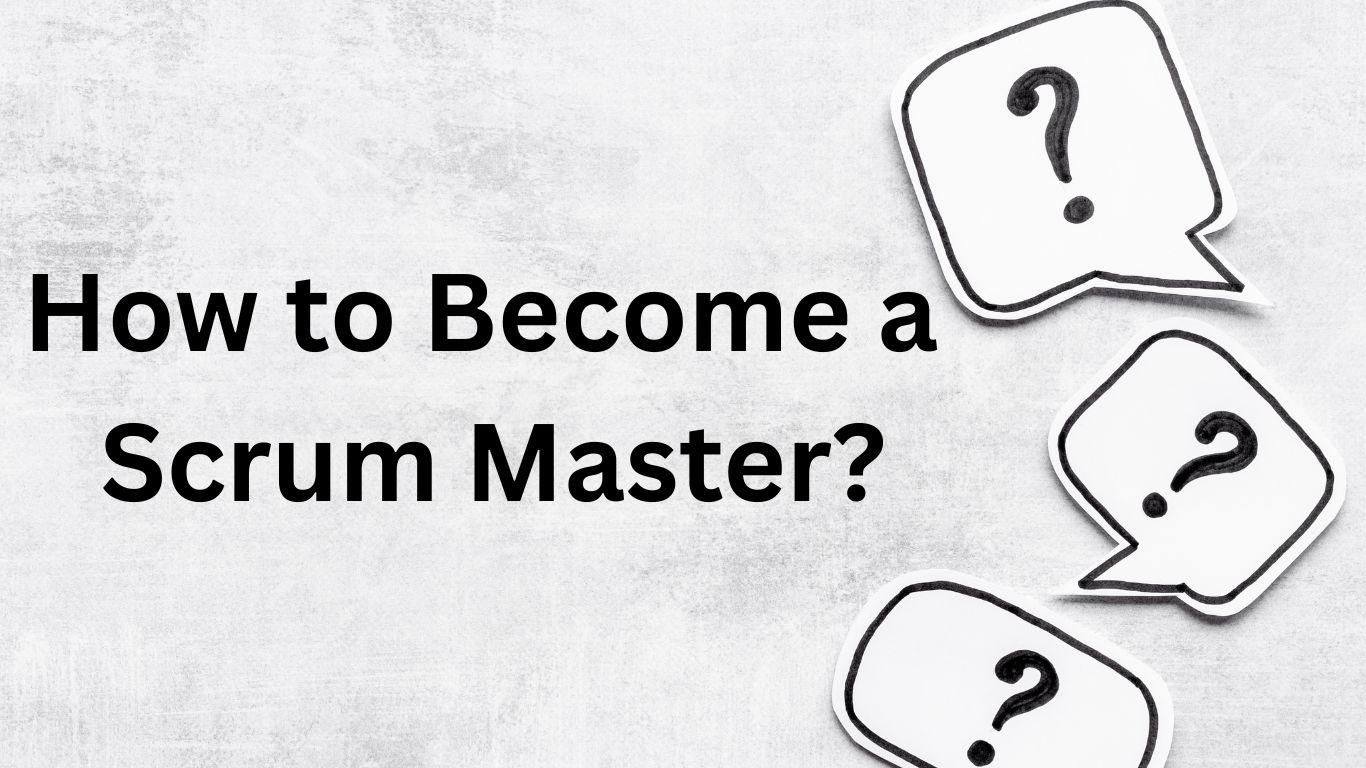How to Become a Scrum Master?

Introduction:
In today’s fast-paced digital world, businesses seek agility to deliver faster results, adapt to change, and satisfy customer needs. This has fueled a massive demand for Scrum Masters. According to the Scrum Alliance, 87% of agile teams use Scrum, making Scrum Masters essential for project success. If you’re passionate about leadership, collaboration, and problem-solving, becoming a Scrum Master can open doors to high-paying, fulfilling careers across industries like IT, finance, healthcare, and beyond.
This blog is your complete guide to becoming a Scrum Master. We’ll walk you through everything from understanding certifications like PSM certification and Certified Scrum Master Certification to practical steps on how to succeed in this exciting role.
Let’s dive in.
What Is a Scrum Master?
A Scrum Master acts as a servant leader for agile teams, ensuring that Scrum practices are followed properly. They remove obstacles, facilitate meetings, coach team members, and help create a productive environment where agile principles can thrive.
The Scrum Master doesn’t manage the team but empowers the team to manage itself which is a key difference from traditional project managers.
Why Become a Scrum Master?
-
High Demand and Salary: According to Glassdoor, the average salary of a Scrum Master in the USA is over $110,000 per year.
-
Career Growth: Opportunities to move into Agile Coaching, Product Ownership, or even Program Management.
-
Versatility: Scrum Masters are needed in IT, banking, healthcare, government, and startups.
-
Impactful Role: Help teams deliver value efficiently and continuously improve their workflows.
Understanding Scrum Certifications: Which One Should You Choose?
1. PSM Certification (Professional Scrum Master Certification)
The PSM Certification is offered by Scrum.org and is globally recognized. It emphasizes a deep understanding of Scrum principles, values, and frameworks.
Ideal for: Individuals looking for a rigorous, theoretical foundation in Scrum.
2. Certified Scrum Master Certification (CSM)
The Certified Scrum Master Certification is offered by the Scrum Alliance. It requires attending a 2-day workshop followed by an exam.
Ideal for: Beginners who prefer interactive, instructor-led sessions.
3. CSPO (Certified Scrum Product Owner Training)
Although it focuses on the Product Owner role, CSPO Training gives a great understanding of Scrum workflows, making it beneficial for Scrum Masters who want to expand their collaboration skills with product management teams.
4. Other Certifications to Explore:
-
Scrum Agile Certification
-
Certification Agile
-
Agile Scrum Master Course
Each certification adds value and credibility, boosting your job market appeal.
How to Become a Scrum Master: Step-by-Step Guide
Step 1: Understand Agile and Scrum Fundamentals
Before diving into certifications, you need a solid grasp of:
-
Agile Manifesto principles
-
Scrum framework (roles, artifacts, events)
-
Differences between Scrum, Kanban, and traditional project management
Tip: Enroll in Agile and Scrum Training programs like the ones offered at H2K Infosys to build strong foundational knowledge.
Step 2: Choose the Right Certification
Decide between PSM Certification or Certified Scrum Master Certification based on your learning style. If you prefer self-study and deep dives, PSM is a great choice. If you like workshops and hands-on learning, CSM may suit you better.
Long-Tail Tip: Search for an "Agile Scrum Master Course with hands-on real-time projects" to gain practical exposure.
Step 3: Enroll in Scrum Master Training and Placement Programs
Training prepares you for both the certification exam and real-world application. Look for programs that offer:
-
Live instructor-led sessions
-
Case studies and simulations
-
Interview preparation and resume building
-
Placement assistance
Example: H2K Infosys offers Scrum Master Training and Placement with live project work, helping learners transition directly into Scrum Master roles.
Step 4: Prepare and Clear the Certification Exam
Each certification has its exam format:
-
PSM I: 80 questions in 60 minutes (passing score: 85%)
-
CSM: 50 questions in 60 minutes (passing score: around 74%)
Preparation Tips:
-
Take practice tests
-
Join online study groups
-
Review the Scrum Guide multiple times
-
Engage in mock sprints to simulate real Scrum environments
Step 5: Build Real-World Experience
Hands-on experience is critical. Seek internships, freelance Scrum Master roles, or shadow certified Scrum Masters in your network.
Important: Many companies prioritize candidates who show real-world experience during interviews, even more than just holding a certificate.
Step 6: Continue Learning and Growing
Scrum is all about continuous improvement. After your first certification, consider:
-
Advanced Certifications: PSM II, PSM III, CSP-SM
-
Product Owner Certification: Broaden your understanding by completing Certified Scrum Product Owner Training.
-
Agile Scaling Frameworks: Explore SAFe, LeSS, or Nexus to handle larger teams.
Continuous education makes you a standout candidate for senior roles.
Skills You Need to Become an Effective Scrum Master
-
Facilitation Skills: Running daily stand-ups, sprint planning, and retrospectives smoothly.
-
Coaching and Mentoring: Guiding teams to be self-organized.
-
Conflict Resolution: Addressing team conflicts constructively.
-
Adaptability: Being comfortable with change.
-
Communication: Articulating issues to Product Owners and stakeholders effectively.
Real-World Example: Career Journey of a Scrum Master
Anita, a marketing coordinator, transitioned into tech by enrolling in an Agile Scrum Master Course. She pursued PSM Certification, participated in multiple mock sprints during her training, and landed a Scrum Master role at a healthcare tech company within six months. Today, she earns double her previous salary and is working toward Certified Scrum Product Owner Training (CSPO) to further broaden her skills.
Her success story highlights the power of combining certification, training, and practical experience.
Common Questions About Becoming a Scrum Master
Is Scrum Master Only for IT Professionals?
No. Industries like healthcare, banking, education, and even manufacturing use Scrum methodologies. Non-IT professionals can easily transition with proper agile and scrum training.
Do You Need Technical Knowledge?
While technical knowledge can help in specific environments (like DevOps teams), it’s not mandatory. Focus more on agile principles, facilitation, and team dynamics.
Can a Business Analyst Become a Scrum Master?
Absolutely. Many business analysts leverage their stakeholder management skills to succeed as Scrum Masters. Adding scrum certification boosts their chances significantly.
Conclusion:
Becoming a Scrum Master is an achievable goal if you follow a strategic plan understand Scrum fundamentals, select the right certification, get professional training, and build practical experience.
If you’re ready to transform your career and thrive in the agile world, enroll with H2K Infosys for Professional Scrum Master training and placement assistance today.
Start your Scrum Master journey now learn, certify, and lead!





